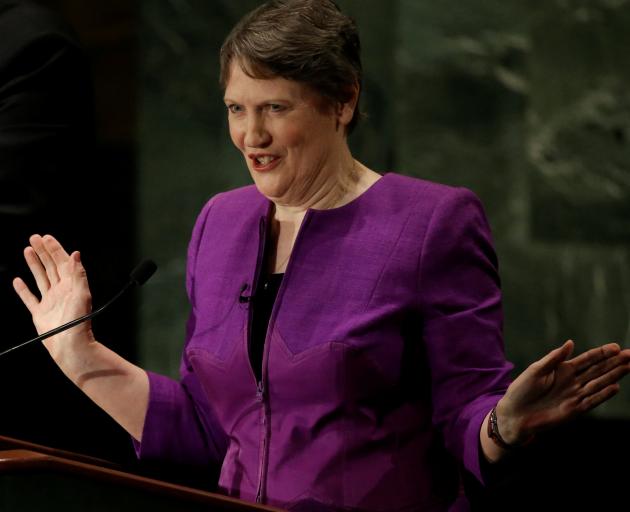
Comment: Helen Clark did not lightly enter the contest to become the UN Secretary-General and she is not going to quit lightly, says New Zealand Herald political editor Audrey Young.
The Security Council's next indicative ballot is not until the end of this month.
The former New Zealand Prime Minister, who now heads the UN Development Programme, has a team in New York who have dedicated themselves to her campaign.
They need time to work out whether Saturday's disappointing vote means no chance of success or if she still has a small chance.
Clark's chances have never been high, although her public performances probably gave that impression.
She is not from the preferred region, Eastern Europe, she's strong and she has reforming tendencies that may not endear her to the Permanent Five.
In Saturday's voting, with the combination of "encourage," "discourage"and "no opinion," she slipped from sixth place to seventh place out of 11.
The number of countries that voted "discourage" increased from five to eight. But then so did every other candidate's "discourage" totals, except one.
New Zealand undoubtedly had the same dilemma as every other Security Council member; perhaps agreeing on who the top three or four candidates were but knowing that if you voted to encourage them, you may have been disadvantaging your first preference.
Prime Minister John Key summed up Clark's next steps simply: if she thinks she can win she will stay in the contest, and if she thinks she can't, she won't.
But working out whether she has a chance is not that simple.
As Clark and her advisers assess her chances, these are some of the things she could consider:
1. VOLATILITY: The difference between the first poll and the second poll shows volatility in the voting. One candidate moved from eighth to third. The movement worked against Clark in the second ballot when she declined in ranking but it could work in her favour in the third.
2. COMPROMISE: Several of the frontrunners may well attract vetoes from members of the P5; the frontrunner Antonio Guterres from Russia, Susan Malcorra from Britain, Irina Bokova and Vuk Jeremic from the United States. Clark may not be the favourite candidate of many voting countries but she could be an acceptable compromise whom countries want to keep around as insurance in case a consensus candidate cannot be found.
3. SUPPORTERS: Having built up a popular campaign through social media for an appointment based on merit and greater transparency, Clark may not want to be too hasty in withdrawing from the contest lest she is seen as a quitter, not a fighter.
4. TIMING: Any withdrawal may depend on how many others withdraw. One candidate already has, from Croatia. If the next bottom two withdraw, from Montenegro and Slovakia, she could be near the bottom of the pack in the third ballot and that would be an ignominious end. If they stay for a third ballot, and she still can't rise above the middle of pack, that may be a better time to go.
• The Security Council consists of: Angola, Egypt, Japan, Malaysia, New Zealand, Senegal, Spain, Ukraine, Uruguay, Venezuela and those with a veto: Britain, China, France, Russia and United States.
- By Audrey Young, New Zealand Herald political editor












